Forgiveness
Clearing the record of those who have wronged me and allowing God to love them through me
“And be ye kind one to another, tenderhearted, forgiving one another, even as God for Christ’s sake hath forgiven you.”
EPHESIANS 4:32
JOSEPH’S UNEXPECTED RESPONSE TO HIS BROTHERS
“And Joseph said unto them . . . . But as for you, ye thought evil against me; but God meant it unto good . . . . Now therefore fear ye not: I will nourish you, and your little ones. And he comforted them, and spake kindly unto them.”
GENESIS 50:19–21
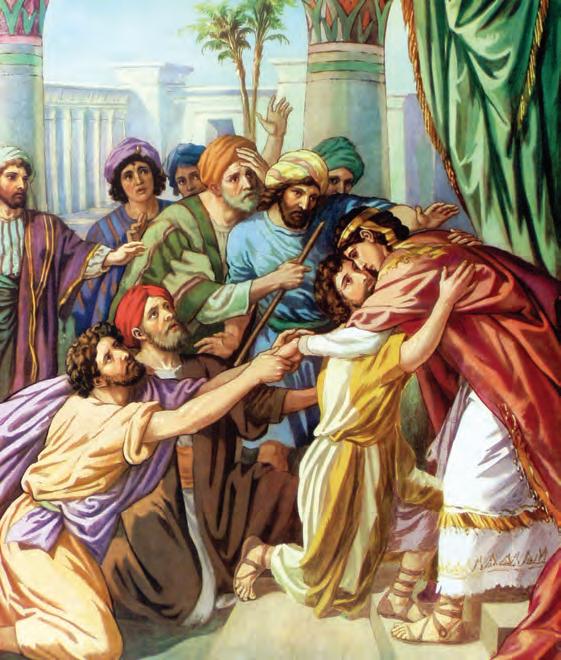
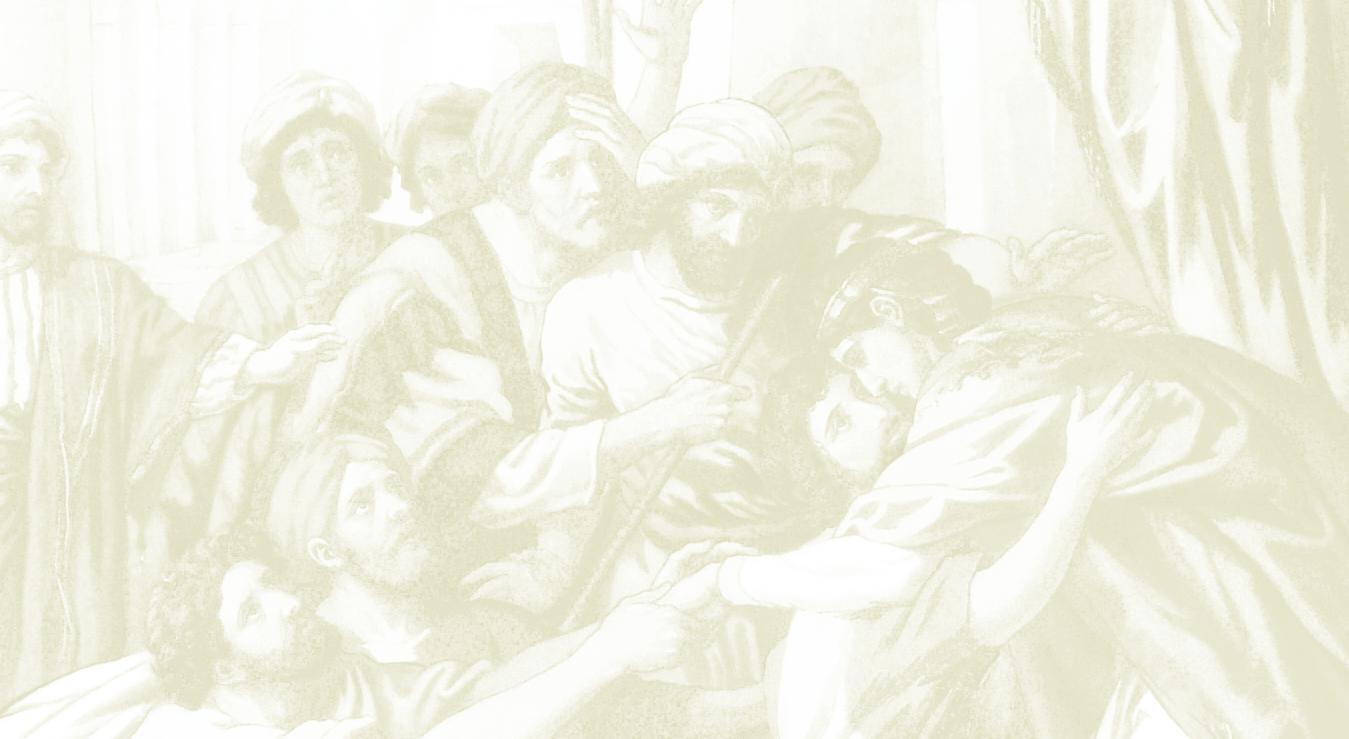

BIBLICAL CHARACTER ILLUSTRATED CURRICULUM Illustrated in Scripture, Illustrated in Life
GIFT: Prophet
SPIRITUAL
CONTENTS
2 Introduction
2 How to Use This Curriculum
3 Goals and Objectives
4 Character Quality Overview
5 Forgiveness in Scripture
6 Lesson 1: Clear the Record
7 Bible Story: The Unforgiving Servant
8 Memory Verse: Hebrews 12:15
9 Activity: A Drop in the Bucket!
10 Lesson 2: Respond Kindly to Those Who Hurt Me
11 Bible Story: Joseph’s Unexpected Response to His Brothers
12 Memory Verse: Ephesians 4:32
13 Activity: Intended for Good
14 Lesson 3: Acknowledge My Sin
15 Bible Story: A Story Convicts a King
16 Memory Verse: I John 1:9
17 Activity: Crossword Puzzle
18 Lesson 4: Ask for Forgiveness
19 Bible Story: The Prodigal Son Comes Home
20 Memory Verse: Proverbs 28:13
21 Activity: Nothing Between
22 Additional Resources
22 Forgiveness GEMs

23 Journal and GEM Mine
24 Hymn Sheet Music: “Arise, My Soul, Arise!”
25 Hymn History: “Arise, My Soul, Arise!”




 by Charles Wesley
by Charles Wesley
26 Explaining Salvation to a Child
27 Reproducible Coloring Pages
31 Recommended Resources


Biblical Character Illustrated Curriculum
Illustrated in Scripture
“The testimony of the Lord is sure, making wise the simple” (Psalm 19:7b). Biblical character is illustrated in this curriculum through both artwork and lessons from the lives of people in God’s Word. We most often benefit from the positive examples of faithful men and women. “For whatsoever things were written aforetime were written for our learning, that we through patience and comfort of the scriptures might have hope” (Romans 15:4). There were also people in the Bible who are representations of poor character, and we can learn from their lives as well. “Now these things were our examples, to the intent we should not lust after evil things, as they also lusted” (I Corinthians 10:6). We would be wise to learn from the testimonies God has given us in Scripture.
Illustrated in Life
“Faith cometh by hearing, and hearing by the word of God” (Romans 10:17). Hearing the Word of God causes us to grow in faith. This curriculum offers many practical applications of God’s Word to everyday life. “But be ye doers of the word, and not hearers only” (James 1:22). As God enables us to act in faith, our lives as believers will illustrate His character to others.
The
character of God is illustrated in Scripture. May it also be illustrated in our lives.
Character Quality Overview


What Is Forgiveness?
Read aloud and discuss what forgiveness means and how it applies to life.
The operational definition of forgiveness is “clearing the record of those who have wronged me and allowing God to love them through me.” In a world filled with sin and conflict, offenses are inevitable. One key God gives for unity is forgiveness. Forgiveness does not mean you ignore an offender’s sin or waive the consequences. However, it does mean that you make a deliberate decision to let go of any bitter or vengeful feelings toward the one who has wronged you. Whether or not he repents, you choose to forgive him, thereby clearing the record of his wrong against you. “Clearing the record” means you choose to forget his offense and love him as God enables you, despite the pain that he caused you.
and carrying out their penalties! God wants you to trust Him as Judge. Instead of reacting, seek to meet the needs of the ones who hurt you. You cannot prevent wrongs, but you can know that when they happen, God will enable you to respond with forgiveness and not with revenge or rejection.
When
The opposite of forgiveness is rejection. When people wrong you, your natural response is to retaliate or to hurt them in return. You want them to pay for what they did. You may lash out in angry words or actions. You may avoid them. Perhaps you say nothing, giving them the “silent treatment.” You may tell others, hoping they will turn against your offenders, too. These responses are all forms of rejection, springing from an unforgiving heart. With those reactions, you are putting yourself in God’s place and acting as judge over your offenders, deciding
Think of God’s incredible forgiveness! Despite our continually sinning against Him, God mercifully sent His own Son to suffer and die, taking upon Himself the punishment for our sin. In Colossians 2:13–14, we read that He forgave all our trespasses, “blotting out the handwriting of ordinances that was against us . . . and took it out of the way, nailing it to his cross.” God loved us and wanted a restored relationship with us! We did not ask for it. We did nothing to deserve it. As we realize the magnitude of our sin against God, we will better appreciate the greatness of His forgiveness toward us. Our gratefulness to Him will motivate us to forgive others and then extend His love to them. What better way to share the Good News than by modeling God’s mercy and forgiveness to those who have hurt us? “And all things are of God, who hath reconciled us to himself by Jesus Christ, and hath given to us the ministry of reconciliation” (II Corinthians 5:18).
When we do not forgive others, bitterness takes deep root in our lives and eventually produces evil fruit that will defile many. (See Hebrews 12:14–15.)


4
we acknowledge our sins against God, He promises: “though your sins be as scarlet, they shall be as white as snow” (Isaiah 1:18).
Forgiveness in Scripture
As you read and study God’s Word, you will see Who He is! Be willing to be changed by Him so Christ can be seen through your life and others will glorify God.
The Character of God

We see examples of forgiveness in God’s character in the following ways:
• God, Who is rich in mercy, stands ready to abundantly pardon all who forsake their sin and return to Him.
(See Isaiah 55:7.)
• God’s forgiveness is so great that when He forgives our sin, He also chooses not to remember our sin.
(See Jeremiah 31:34.)
• God did not forsake the rebellious Israelites but continued to love them and fully meet their needs during their wandering in the desert.
(See Nehemiah 9:16–21.)
• Jesus entreated His Father to forgive the very men who falsely accused, wrongly condemned, and viciously crucified Him.
(See Matthew 26:59, Luke 23:20–23, 33–34.)
• Jesus did not come to condemn sinners but to bring salvation and restoration to them.
(See John 3:17–18.)
• Jesus Christ, our Mediator before God, gained access for us to be able to seek and know God’s forgiveness.
(See I Timothy 2:5.)
• The Holy Spirit convicts believers of sin and the need for God’s forgiveness.
(See John 16:8.)
FORGIVENESS KEY VERSE
“And be ye kind one to another, tenderhearted, forgiving one another, even as God for Christ’s sake hath forgiven you.” EPHESIANS 4:32
Forgiveness in My Life
Now let’s examine some ways God wants us to live out forgiveness daily.
• Instead of hiding my sin from God, what should I do?
(See Psalm 32:5.)
• How can I respond kindly to those who speak harshly to me?
(See Proverbs 15:1.)
• If I choose to repeatedly mention wrongs committed against me instead of overlooking them, what will happen?
(See Proverbs 17:9.)
• How can I demonstrate forgiveness to my enemies?
(See Proverbs 25:21–22, II Corinthians 2:7.)

• Have I experienced God’s forgiveness and justification in my own life?
(See Romans 3:24–25.)
• Why should I fully forgive someone instead of harboring a grudge?
(See Colossians 3:13.)
• How ought I respond to false accusations so that my actions are pleasing to God?
(See I Peter 2:19–20.)
5
Respond Kindly to Those Who Hurt Me 2

Has anyone ever hit you, and you wanted to hit him back? When a friend played unfairly, did you consider never playing with him again? These responses return evil for evil. In Matthew 5:44, Jesus says to respond to evil by doing good to them and praying for those who have hurt you. God, not you, is responsible for bringing justice to the wrongdoer.


“Dearly beloved, avenge not yourselves . . . Vengeance is mine; I will repay, saith the Lord. . . . Be not overcome of evil, but overcome evil with good” (Romans 12:19, 21). Sometimes the kind thing to do—not in vengeance, but for the sake of your offender and others—is to report the wrong to an authority. Whatever the offense, God will give the grace you need to overcome the temptation to retaliate and, instead, to respond kindly. (See Hebrews 4:16.)
Clearing the record of those who have wronged me and allowing God to love them through me

10
FORGIVENESS
INTRODUCTION
GOD ENABLES ME TO
Joseph’s Unexpected Response to His Brothers
BIBLE STORY
Joseph’s Unexpected Response to His Brothers
Through miraculous circumstances, the young Hebrew slave Joseph became ruler over all the land of Egypt, second only to Pharaoh. Joseph followed God’s direction and wisely stored up grain before the prophesied famine began. As the famine spread throughout the earth, a group of ten foreigners arrived and bowed down to Joseph, requesting to buy grain. Joseph recognized them immediately. These men were his older half-brothers! More than twenty years earlier, they had thrown him into a pit and ruthlessly sold him into slavery! Joseph decided to not reveal his identity yet, and his brothers left Egypt with their purchase of grain. The day came when the brothers’
supply of food was again depleted. They made a second journey to Egypt. This time, to test their repentance, Joseph hid his silver cup in the youngest brother Benjamin’s sack of grain. When the chalice was found, an older brother pleaded to take Benjamin’s punishment. Joseph, seeing their change of heart, could no longer hold back his tears. After ordering all the Egyptians to leave the room, Joseph wept aloud. What would he say to his brothers? Would he seek revenge and choose to have his offenders punished? Or would he act kindly toward those who had hurt him?
Let’s read the Bible story in Genesis 45:3–25, 50:15–21 and then discuss the following questions.
1. After Joseph revealed his identity, how did his brothers respond and why? (See Genesis 45:3–5a.) After someone has sinned, how may he feel? How should you respond to him? (See I Peter 3:8–9.)
2. What perspective did Joseph choose to have in his sufferings? How many times did Joseph say, “God sent . . . ”? How did this perspective help him to be kind? (See Genesis 45:5b–8.)

Why does God allow trials? (See Romans 8:28–29.) How does realizing this truth change your attitude toward those who have wronged you?
3. What did Joseph tell his brothers to do? How would he provide for their physical needs for the remainder of the famine? (See Genesis 45:9–13.) Who has wronged you? What needs do they have that you can meet? (See Romans 12:20–21.)
4. How did Joseph show that he had forgiven his brothers? Did his kind response cause them to be more open to communicate with him? (See Genesis 45:14–15.)
How do grudges affect communication?
5. Who else was touched by the emotional reunion? How did they respond? (See Genesis 45:16–21.)
When others observe you showing kindness to your offenders, what may they be encouraged to do?
6. What gifts did Joseph bestow upon his brothers? (See Genesis 45:22–23.)

What can you give to a brother or sister who has been unkind to you? (See Proverbs 22:9.)
7. Seventeen years later, after their father Jacob died, why were Joseph’s brothers afraid? What message did they send to Joseph? (See Genesis 50:15–18.)
Is God’s forgiveness temporary or permanent? To follow His example, should you bring things up again that have already been forgiven?
8. How did Joseph respond to his brothers’ request? What did he commit to do? (See Genesis 50:19–21.)
What kind words could you speak to someone who has not been kind to you?
11
LESSON 2 Respond Kindly to Those Who Hurt Me
Revealing the character of Christ through the stories in His Word.
SAVE 20% on any individual Biblical Character Illustrated booklets

Use coupon: BCICBOOKLET


Biblical Character Illustrated Curriculum
Discover this unique tool that uses the stories in Scripture to illuminate character qualities God wants to develop in the lives of His people. This curriculum contains multiple ways to teach character to kids and give them a vision for building character through faith in Christ!

Single Booklets: $10 each
Complete Set: $379 (SAVE 23%)
OTHER BIBLICAL CHARACTER RESOURCES

Single PDF Download: $3 each
PDF Download Set: $109 (SAVE 25%)

Biblical Character Illustrated 49-Booklet Set
Includes 2 bonus items: Calendar + Understanding Spiritual Gifts

Power for True Success
Insightful, Biblical studies on all 49 character qualities
Hymns for the Family, Volumes 1–4
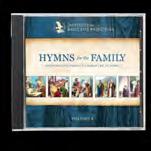
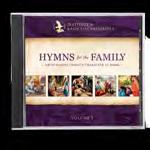
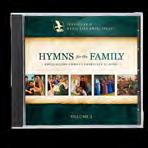

Companion hymns for each character quality
Character Sketches, 4-Volume Set
Timeless resources to show God’s character relfected in creation

Shop these resources at store.iblp.org. • Questions? Call 903-636-9600 or email biblicalcharacter@iblp.org.



























